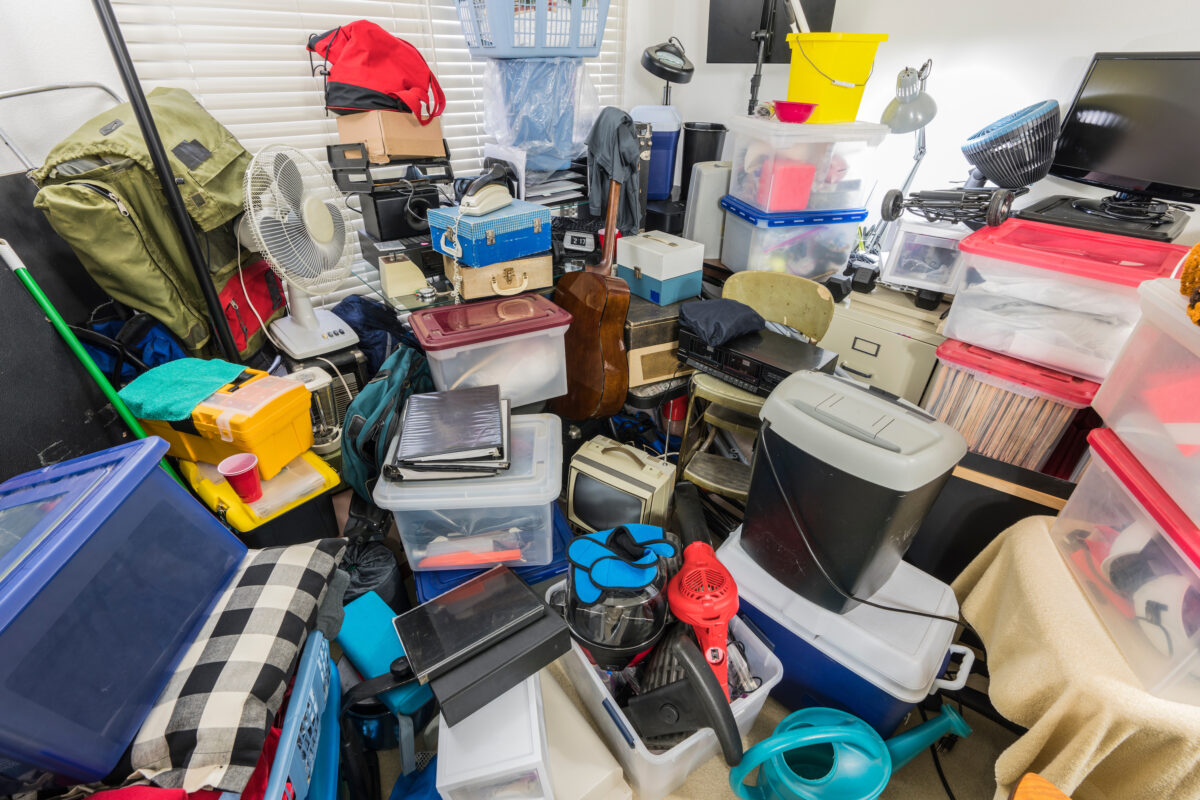What to Avoid When Trying to Help a Hoarder

Last time on the blog we talked about how to help a loved one who is struggling with a hoarding disorder. Through recognizing the signs, empathizing and encouraging them to seek out help, and celebrating their victories you can help your loved one overcome their struggles. But just as there are things you can do to help, there are definitely things you should avoid! This time on the BioClean blog, what to avoid when trying to help a hoarder.
Don’t Touch Things Without Permission
People who are fighting a hoarding desire have strong emotional attachments and compulsions with their belongings. It might not be clear and obvious to you, but they’re there and there’s not necessarily obvious reasons behind it. You want to be careful not to cause them any excess distress or make the problem worse by touching things without their permission. Their anxiety around belongings often has roots in not having something they fear is needed or having it taken away from them. That’s why throwing things away without the person hoarding it expressing their permission is a recipe for disaster. It will make the person upset, angry at you for doing it and they’re less likely to seek out further help from you or anyone else.
Don’t Judge Them
If we encourage you to empathize with them, the opposite is also true: don’t judge them. The anxiety and associated problems with hoarding disorder predisposes the hoarder to feeling less than, afraid of being judged. So if you truly want to help, do your best to avoid casting any judgments on them or their behavior yes it may be difficult, but they need you to be empathetic and caring, not another voice of judgment that they already know or fear.
Temper Expectations
If the hoarder in your life agrees to clean up or change, don’t expect it to happen over night. They didn’t accumulate a house full of stuff over night, it will take them longer than that to clear it out. Having that expectation will only cause frustrations in them and you. And hoarding isn’t just about gathering stuff it’s about the emotional baggage that comes along with it. Reckoning with that is more than an overnight job.
And don’t expect perfection in this change either! It’s going to be incredibly difficult for them to make this change, even with support and professional help. Don’t try and make them feel like they have do it immediately, perfectly, first try. That’s not sustainable and just leads to frustration. Gradual changes are more likely and effective.
Don’t Enable or Encourage Hoarding Behavior
Of course you’d never think to encourage hoarding behavior, but you might not realize that some of the things you’re doing could be enabling it. For instance – what do you do for your loved one’s birthday? Do you give them a gift, a physical object? Do you go shopping with them? Do you hold on to or store anything for them? You see how even the best intentions of some of these could enable or encourage hoarding behavior.
Cleaning up after them is another way of enabling their behavior. Having someone else take care of their messes can remove one more reason for them to see that they need to get help and change things. You can help them go through things and organize them, but you can’t take care of something and expect to get to root problem.
And when it comes time to clear out those hoarding spaces when they have grappled with their troubles? Call in a professional hoarding clean-up services like BioClean Team to help take care of it!
